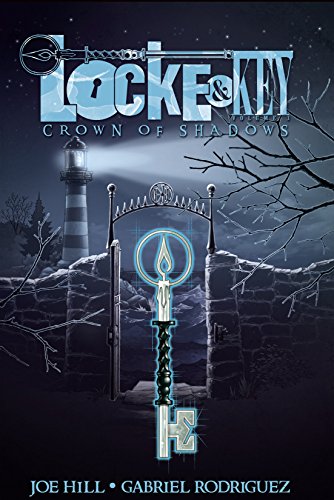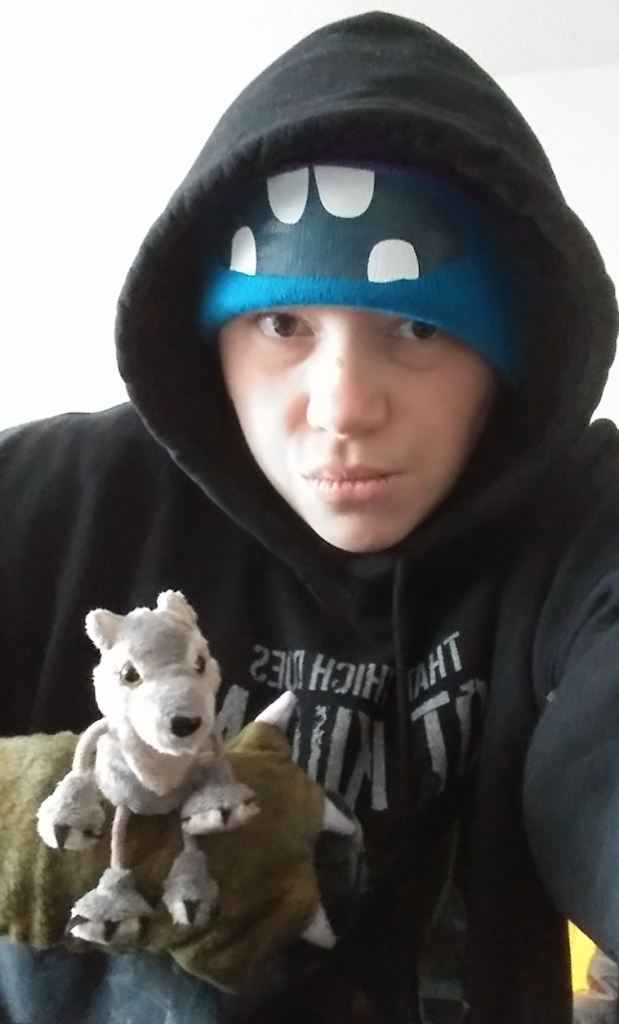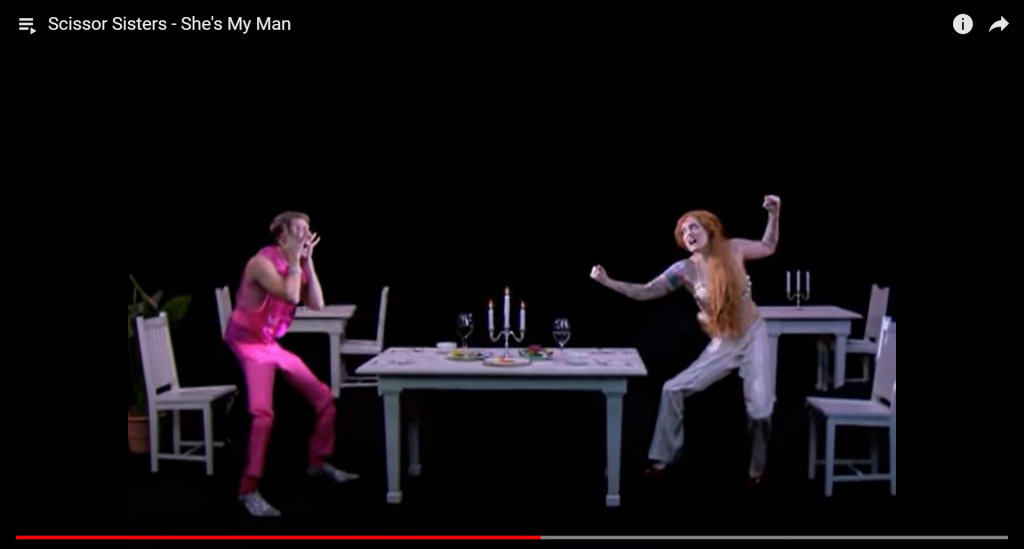Content note (click for details)
Content note: death of close family, griefI suppose being orphans made Jannah and I excel at animating. I think the ability blooms fiercest in children who’ve experienced loss.
As brother and sister, we’d been assigned to the Ming-Lelanges. That first day with them, they took us to the topiaries, where elephant and giraffe shrubberies guarded the lawns. Some relief from the city’s smokestacks, trains, and dirigibles. There, industrial pollutants had made keeping live animals impossible. But here, families strolled on the grass, among stone anima frozen in whatever poses they’d been left in—not real animals, but close enough.
Jannah sucked her thumb, watching children stare at stone puppies and kittens. The resultant living anima fetched balls. It was our first time seeing animation in practice, something that had gotten more popular as advancements in steam-engines drove animals further inland.
The Ming-Lelanges explained that moving anima wasn’t just about seeing and remembering an animal’s movement. Animating involved memory, but it was really about grasping the animal’s essence: you had to comprehend a puppy’s tail-wagging—its sniffing curiosity, its joyous face-licking—to move something puppy-shaped.
“Your memories of the animal, your understanding of its spirit,” Steffer Ming-Lelange said. “You push that into the stone. Watch!” He frowned at a monkey-animus; it shifted, ambling stiffly across the grass.
Jannah shrieked with delight. “Like when we went to the zoo! With Mom and Dad!”
We’d been sad for so long over our parents’ deaths. I thought I’d never see Jannah smile again.
Steffer strained at the monkey, but like other adults, his talent had faded. His husband Marle couldn’t animate at all. The monkey ground to a standstill.
Suddenly, it somersaulted. Steffer turned to Marle. “That wasn’t me.”
They saw me squinting at it. Mom had wanted to see the birds at the zoo’s aviary. I’d whined it was too far, and Dad agreed. Mom had looked a little sad–birds being so rare those days–but smiled it away. She stifled a cough. We saw the monkeys instead.
We’ll see birds next time, Mommy! Jannah had said, tugging Mom’s hand.
She’d laughed. Next time, kids! Promise with a kiss!
Together, Jannah and I blew her one. MMM-wah!
My eyes got wet from the pit forming in my chest. I set my jaw and stared harder. The stone monkey cupped a hand to its mouth, and tossed it out, something I’d seen the zoo monkeys do. A kiss for Mom–too late. We never got a chance to see the birds. We never got to see Mom’s face light up at the wings fluttering in smogless air.
Steffer clapped. “Well done!”
I smiled, making the monkey eat imaginary bananas.
“Where’s Jannah?” Marle asked. The monkey froze mid-bite as I whirled around to look. The accident that had taken our parents was sudden. One moment we were together, the next… Jannah was all I had left.
A commotion from the topiaries.
The shrubs were trained with wicker-wire—framework evoking enough animal-shape for Jannah to aim her hopeful intent at.
“That won’t work, dear,” an attendant said. “Only the stone anima can—”
The attendant gaped as, under Jannah’s stare, an elephant shrubbery tore loose.
Yes, during that zoo trip, we’d seen elephants, too. Raising its trunk, the elephant trumpeted. It sounded offended. Upset. Nobody’s ever explained how she did that. It was greenery, nothing that could actually make noise.
Afterwards, whenever anyone asked, Jannah only smiled.
As more attendants approached, Steffer and Marle winced at the damage, even as they laughed.
That night, Jannah came to my room. “I felt the elephant’s spirit!”
I knew where she was going with that. As older brother, I had to explain the nature of death. I considered my words carefully.
“Elephants get angry, Jannah. They stampede and trample. But your shrubbery didn’t do those things, because that wasn’t an elephant’s soul you pushed into that shrubbery. It was what you remembered. Your understanding of elephants in general. It was a… recording. An impression.”
Jannah went quiet. “I don’t remember any angry elephants that day at the zoo.”
“When people die,” I pressed, “nothing but bodies remain.”
“But something was there for me to pull that shrub. So… maybe Mom’s spirit is still around. Or Dad’s. We have to remember them!”
I shrugged. “We’re Ming-Lelanges now. That’s not a bad thing. They’re kind.”
“Mom and Dad’s spirits are still around.”
Her argument was tempting. And after she left, something nagged me. She was right. When we saw elephants at the zoo, none of them were angry. None of them trumpeted.
But animating made Jannah happy. Her nightmares stopped, though sometimes I’d hear crying from her room.
*
And I?
I’d have dreams of taking Mom’s hand–she’d be wearing one of those dresses she couldn’t help staring at as we’d pass the fancy store windows–not in her workboots and hairnet. She wouldn’t be coughing for once, and I’d drag her to the aviary.
She’d turn and say, but what do you want to see, my darling son?
And I’d say, Mommy, as if I were a toddler, but in the dream, I wouldn’t care–Mommy, look at all the birds you like.
And she’d frown to argue, but a bluebird would streak by and she’d gasp and forget she was dead.
And I’d say, Mommy? I miss you.
But she’d be so enthralled by the birds she wouldn’t turn immediately.
And I’d wake, and I’d be crying, too.
Not a memory. It wasn’t even something I could properly lose.
*
Our fathers took us to a dinosaur museum, which was odd, because by then we’d gotten into trouble animating things we weren’t supposed to. Jannah didn’t suck her thumb anymore, but manipulated the vaguest animal-shaped objects. These saurian bones were very tempting.
Jannah grabbed my hand. From ceiling strings hung a four-winged beast of long, swooping neck.
“Plesiosaur,” Steffer announced, reading from his brochure. “A swimming dinosaur; those wings are fins.”
Jannah’s gaze intensified, and Marle warned, “No animating!”
Her eyes refocused, and she frowned. “I can’t… It’s not a lizard….”
I stared at the skeletal fins fanning the air. “Don’t—!” Steffer yelped as I thought hard of fish.
But I felt only blankness against Plesiosaur’s remains. “I can’t either! What gives?”
Steffer’s panicked expression was gone. Our fathers laughed, knowing all along we couldn’t animate anything there.
“Nobody’s seen a living dinosaur,” Steffer explained. “There aren’t any memories to pull, so nobody understands their essence. Nothing remains of them. Except those bones, of course.”
“Nothing, nothing, truly nothing!” Marle sang.
Still, Jannah and I looked to Plesiosaur, neither lizard nor fish, something out of place as it dove with hollowed eyes and spiny teeth. Something broken. Pieced together. Lacking the spirit of the original whole.
*
Jannah and I attended competitions. Toymakers wheeled new anima designs on-stage, snatching off veils with flourishes for teams to animate. Once, SynerObjects unveiled a tarantula-animus, a delicate collaboration of woven straw. It baffled the other competitors, the entire auditorium. Nobody could elicit a tick of movement.
But I’d seen one! Jannah had been a toddler, but we’d gone to an insectarium. I’d told Jannah about that day. Our parents were always so busy. They worked the factories, coming home tired, cheeks smudged, coughing from the soot. But they always took us to see animals.
I pushed my intent into the straw: the tarantula shuddered forth. The audience cheered—then gasped.
My tarantula’s jerky movements melted into sudden fluidity. The tarantula’s hairs bristled; it waved forelegs, mandibles twitching. Jannah was staring at it.
She remembered…
Or maybe I’d described the memory so well she could picture it…
We gained some fame after that. A journalist arrived in this sputtering contraption—an automobile, yet another smog-producing device popular in the cities—to interview Jannah about the trumpeting topiary-elephant. It had become a local legend, though she couldn’t reproduce the trick. The journalist muttered into his notes. “A verum-animalis.”
Supposedly, talented animators could capture an animal’s essence so perfectly, it was like the real thing.
“Have any other verum-animalis made noise?” I asked.
The journalist shrugged, finished scribbling. He had his explanation. We coughed as he drove his automobile away in a cloud reeking of burning rubber.
*
Randomly shaped objects couldn’t be animated. Toymakers produced effigies—the more lifelike, the easier it was for children to animate. Otherwise, you carved your own.
As practice for our competitions, I started carving clumsy wooden anima. I was far better at carving gears and cogs, good for moving contraptions–but useless for animating. Toymakers created anima so lifelike, children readily evoked their animal spirits. But Jannah saw rabbits within my misshapen lumps, made them hop and nose-twitch. We visited zoos again. Jannah sketched a capybara once, detailing the fuzzy gopher head, the four-legged gait. Then I carved, and she animated.
I tried making dinosaurs, but our fathers were right. Nobody understood dinosaurs, so animating anything dinosaur-shaped was impossible. Jannah and I could move elephant- and monkey-anima only because we’d seen them. Heaven forbid, if people forgot those animals, their essences passing into oblivion, effigies frozen forever…
How had Plesiosaur swum its long-lost oceans?
*
Steffer said animation faded with age—like how languages came easier to children than adults. Therefore, adults couldn’t make oxen-anima plow. The smog from the cities and their machines was getting unbearable. People had tried making children move work-anima, but even Jannah couldn’t animate more than a few minutes. Steam, coal, and cold steel were how larger objects moved.
Then JambaToys debuted their self-moving anima. Jamba-puppies chased balls autonomously. If you looked away, they didn’t freeze. They remembered and could be trained. It begged the exciting question: what else could move autonomously?
This was when Jannah’s illness struck, so I ignored all that. From her bed, Jannah smiled weakly at me. I’d improved at carving, made effigies of our parents. Nothing serious, of course. The Dad-figure had his forehead scar–an old work injury; the Mom-figure had enough of her dimples to evoke our memories. “Jannah, do you remember what you said, that first night after the topiaries? If we remember Mom and Dad…”
She sat up, eyes sparkling. “Let’s try!”
But the carvings wouldn’t move. I didn’t know that others had tried moving statues of people. Of course they had. What were statues but noble failures at capturing human essence? I’d forgotten: nothing remained after death. Nothing, nothing. Truly nothing.
Jannah wilted beneath her covers. “I remember them! I… do…”
When she slept, I went outside and stomped my carvings into the ground.
That neither made the world a fairer place, nor made her better.
*
She worsened. She couldn’t animate anymore.
Before I’d carved those parent-effigies, Jannah believed something of our parents remained. But when nothing happened that night, her hope withered. I saw it in her eyes.
Going through our old sketches and carvings, I paused over my dinosaurs.
Plesiosaur fascinated us because if we evoked its long-lost essence, that meant Jannah was right. That our parents’ spirits—who weren’t so long-lost—might also remain.
So… if I made a plesiosaur-animus move? Would that restore Jannah’s smile?
Steffer and Marle wept when I asked, but they procured the puppy-sized Jamba-lizard I requested. Something to cheer Jannah up. I studied the curious switch along its underside, toothed gears and cogs inside, connecting eyes and claws. Very clever.
But the ley-stone nestled within—this was what the journalists were writing about. JambaToys had devised a method to transcribe animal-essences—memories, impressions, recordings, whatever essences really were—into these stones, which moved the cogs and gears. The argument was that work-anima were possible now. The particulates in the air made keeping live oxen in the cities untenable, yet carved versions could pull, if someone would just invent ley-stones big enough to move a workable model.
I stared at the ley-stone.
This one contained a lizard. Not Plesiosaur. Nobody could pull Plesiosaur’s essence into a ley-stone, because nobody remembered it. It had passed beyond earth’s memory, and could never be recalled again.
I frowned over its pebble-like surface until my eyes watered.
I just wanted to see her smile again.
Why couldn’t I have that?
*
“How’d you make the elephant trumpet?” I whispered after the nurse left.
Jannah’s tired gaze touched mine. She couldn’t talk anymore.
“I think you filled that shrub so full of elephant-spirit it forgot it was a shrub.” I placed my carved Plesiosaur onto her bed. My best work yet. “Make this forget it’s wood.”
She blinked tiredly, but I knew what she meant. What’s the use?
“Try,” I pleaded.
She sighed, but her hazy gaze intensified.
I bent forward, moving slowly. “Remember how much Mom loved birds,” I whispered. “Remember how badly she wanted to see birds that day at the zoo! Remember her smile–that you have. Remember Dad’s funny faces. Remember how he always let us win arguments if we whined long enough. All the food they cooked for us. Not even Steffer and Marle could ever cook like that. Remember, Jannah! Remember, remember–”
My voice! I was choking up. Her eyes were filling up with the remembering–mine too. I clicked the switch under the carving’s belly.
Plesiosaur dove onto her sheets. Jannah sat up as it searched her blankets for fish, swooping neck and fins to and fro. She knew she wasn’t animating it; we heard the gears within. Now that it moved, the Plesiosaur showed mechanized joints.
Still, she smiled at me. I love you.
No magical transference of long-lost spirits. No verum-animalis. Just a jerry-rigged lizard-stone, repurposed cogs and gears. The memory of our parents’ unending love, a force that would never leave this earth, even if their spirits had gone. A mundane trick, really.
But I’d gotten that smile, hadn’t I?
*
I have children of my own now.
They’ll ask what happens after death. I’ll explain how people say we leave this world forever. How it’s said when people depart, nothing remains—nothing, nothing, truly nothing. As long as we’ve been good people, that is fine.
I’ll tell them how dire our world once was, where the animals and trees almost died out in our quest for industry and production.
I’ll take their hands, lead them through my company’s workshops, past easels of penciled designs, past historic prototypes of larger ley-stones hooked to voltaic piles. I’ll open the drawers of my schematics showing combined ley-stones moving separate parts, a horse-stone moving a cog-butler’s legs, a monkey-stone moving the fingers. These strange objects that have allowed birds and bees and plants to return.
I’ll pause here, because this part will hurt.
When I’m ready, I’ll tell my darlings that before self-moving ornithopters, steam-horses, and cog-butlers, there lived a girl who made an elephant shrubbery uproot itself and trumpet. A girl who loved zoos and animals and smiling, whom I loved as much as I love each of them. I’ll tell them that in the age of smog, there lived a girl who had the heart of a dinosaur, something untetherable to this world, something too great for earth’s deep fossil memory to anchor within coal or bones. Like her beloved parents before her, this girl is gone, and nothing, nothing—truly nothing—remains.
Then I’ll show them Plesiosaur.
I’ll let it swim along the floor, searching, searching for something long-lost. It’ll stop eventually. It always stops. I’ll open my very first self-moving animus, let my children gasp at its primitive workings, its aged switch. I’ll close Plesiosaur, set it back down.
“Wait,” I’ll say. “Let’s reconsider.”
For if nothing remains—nothing, nothing, truly nothing—then why, when I stare at Plesiosaur and remember Jannah, will it move again, lizard-stone darkened, gears cracked, and my talent long vanished?
© 2022 by Andrew K Hoe
2580 words
Author’s Note: This story was based on sibling-love. In real life, I disagree with my siblings at times. I doubt my family is the only one that struggles to connect. Despite the anger and miscommunication, I think a lot of familial love is ever-present–like a star we cannot see, radiating violent energy, stubbornly pressing light into the darkness. It doesn’t disappear. Somehow, I got plesiosaur into it, and the idea of children being able to do a sort of magic that fades as they mature. I didn’t know it at the time, but I think I wrote this fading magical ability to represent how sibling relationships can be so effortless as children, yet the older we grow, the greater the chance we drift apart. Then the environmental themes with smog and steam entered the mix. An earlier draft of this story was rejected at another venue with promising comments, though the first readers there rightly told me I needed to work out exactly how animating worked. They also thought it was perhaps confusing to mix magic with steampunk. Was this a fantasy story, or a science fiction one? These comments echoed what a writing group I attended at the time told me: this story was genre-confused. I almost gave up on this tale, but I’m thankful I kept trying and that Diabolical Plots accepted this fantasy-ish, steampunk-ish tale.

Andrew K Hoe is an Assistant Editor at Cast of Wonders and a college professor. He is thrilled to have a second story published at Diabolical Plots. His stories also appear at Cast of Wonders, Highlights for Children, Young Explorer’s Adventure Guide, and other venues. He has three siblings who sadly cannot animate animal-shaped objects, but will live for many years yet. He has a nephew who loves dinosaurs and a niece who has an adorable smile. They will both live for many, many years yet.
The previous story by Andrew K Hoe that appeared in Diabolical Plots was “Finding the Center” in August 2020. If you enjoyed the story you might also want to visit our Support Page, or read the other story offerings.









